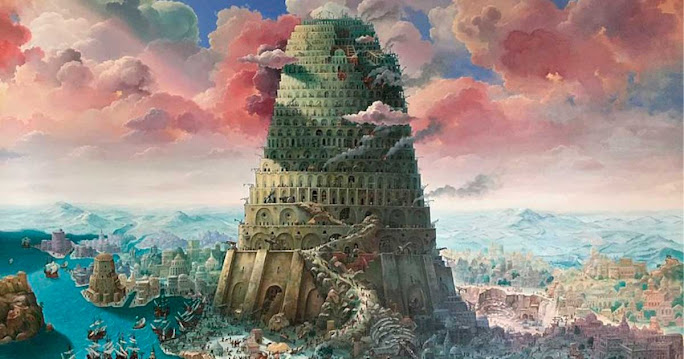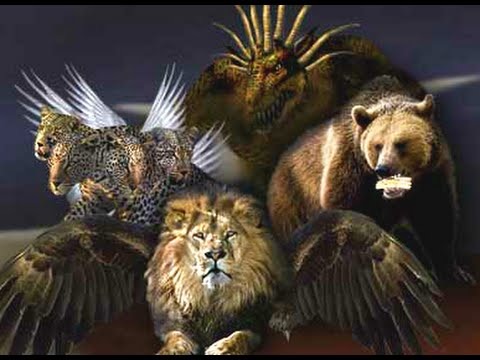Thoughts on "Supernatural" by Michael S Heiser - Chapter 8
Chapter 8 - Sacred Space
In this chapter Heiser points out some things I have completely missed or misunderstood.
1) While I knew about the Yom Kippur ritual of sacrificing one goat "for the Lord" and symbolically placing the sins on another goat (the scapegoat) and sending it out into the desert, I never understood the full reason behind it.
I totally missed that the Israelites had been making sacrifices out in the desert to demons to try to appease them so they would be left in peace. Not knowing this, by reading the passage I assumed those sacrifices were to God, but they weren't doing it in the right place, bringing it to the tabernacle gates. My NIV says they were making sacrifices to the "goat idols" so I should have caught the problem. The Dead Sea Scrolls use the proper name Azazel which was the name of a demon. The goat is often associated with worshiping Satan, so I wonder if this is the connection. Not understanding that these Israelites were hedging their bets and violating the first commandment, makes God seem a bit nit-picky as the penalty for making these sacrifices "in the wrong place" was really high - anyone who did this was to be cut off from his/her people. Also of note, the scapegoat ISN'T sacrificed to demonstrate that sacrifices shouldn't me made to anyone but God. Instead it's released carrying the sins of the people away from the holy place and into the place where evil resides.
2) I never noticed the part about all the intricate carvings in the temple Solomon built - open flowers, cherubim, gourds, and palm trees - was to represent the Garden of Eden.
Passages read: Leviticus 17, 1 Kings 6, 1 Chronicles 28, and 2 Chronicles 28 by mistake.
I know there's no mistakes when reading the Bible so maybe there was a reason God wanted me to read about King Ahaz of Judah and his wickedness - made child sacrifices, made idols, worshipped other gods. It says he "walked in the ways of the Kings of Israel," worshiping idols. (This was back when the kingdom split in two. And apparently neither kingdom was doing the right thing.) Because of Ahaz's evilness, God allowed him to be conquered by Arameans who took the people prisoner and took them to Damascus. Aram is where the word Aramaic comes from, and the Arameans from what I learned from Googling it, were merchants, so I assume Damascus was a big center of trade and the people were taken to be sold as slaves there. The chapter also goes on to say God delivered Judah into the hands of Israel who "inflicted heavy casualties" on them and also took the people prisoner and hauled them and their plunder up to Israel, with the intention of enslaving them. However, a prophet named Oded told them God would be extremely angry with them, and He was already mad at all the destruction they created, and the people needed to be sent back to their own territory - these were their fellow countrymen, after all.
2 Chron 28: 15
So the men designated by name (mentioned in the passage above) took the prisoners, and from the plunder they clothed all who were naked. They provide them with clothes and sandals, food and drink, and healing balm. All those who were weak they put on donkeys. So they took them back to their fellow countrymen at Jericho, the City of Palms, and returned to Samaria.
I guess the takeaway here is to show mercy to your fellow man even if you don't get along with them or agree with how they are doing things. Also, the commentary pointed out that child sacrifice is still prevalent today in the form of abortion.
We shouldn't demonize those who have abortions, even though what they did was tragic and wrong. We should show mercy toward them. I don't know that I'm aware of anyone I know who has had an abortion. I'm sure there must be some out there. If I learn of it, I need to tread lightly and be kind. Chances are they either have regrets or didn't realize the severity of what they did.




Comments
Post a Comment